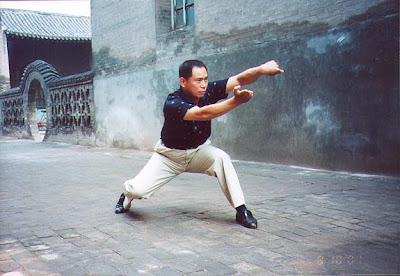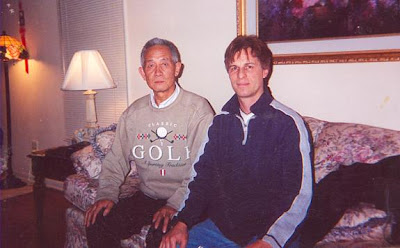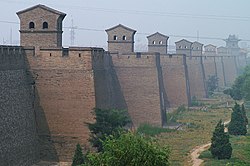
I was discussing "why we teach" with a couple of my friends who also happen to be full-time taiji and martial art instructors. These are serious practitioners who have reached 5th and 6th degree black belts in styles such as Isshin-Ryu Karate and Shorinji-Ryu Karate and are also taijiquan, yiquan and xingyiquan practitioners. We have a small group of four or five of us, each having a minimum of 20 years consistent training in. We train together, share information and look for common links in our styles, for the purpose of becoming better practitioners and teachers. Time, schedules, families and committments often make it tough to train together regularly but we try to make the time. Anyway, that's just some background information before going on with this blog.
I guess this topic came up as a result of my blog stories about some of my teachers, specifically Mr. Chen Junhao. My martial arts buddies love reading the stories of my teacher, and even felt emotionally moved by them. Why? Because when we think back on our lives, it is usually memories of our teachers that seem to ring loudest in our psyche, being or even (dare I say) our souls. Not speaking from any kind of religious standpoint here--for me "soul" refers to a deep place where we resonate with certain other people, and no words or explanations are necessary. For the moment, I am referring to martial arts teachers I have had, and my friends have had; however, one could probably point out high school, middle school or college teachers that could have influenced us deeply. I have had some of them too. But since I am a martial artist first, and a "wannabe" intellectual second, my deeper feelings have come from memories of my coaches. My fencing coach, Mr. A. John Geraci, all the way down the line to my current teacher Dr. James Kan.
A friend of mine who teaches a free meditation class used to say: "The purpose of life is to learn as much as you can, and then teach it to others"--a credo that would be difficult to argue. Of course one could point out other things to explain life's purpose, e.g., love, etc., but learning and teaching must be right up there too. My best teachers have had great passion for what they taught--something that was never lost on me when I was learning from them. My martial arts buddies have also told me the same things, and we've all decided that it was our teachers who inspired us to teach. As a matter of fact, it was the same guy who I quoted above (about the purpose of life) who got me into teaching. I was not really ready to teach, but I was placed in that position. Over time, I started to become the teacher I wanted to be, but that has taken quite a few years. Mr. Chen often told me that to be a good martial artist, a person had to be intelligent--maybe he used another word, like "smart" or "common sense", but you get the point. I have noticed that my martial art teacher friends are very intelligent people, even if they don't have a higher education. And I have noticed that my best students are usually very intelligent or well-educated, or successful people. Lawyers, PHD's, professors, artists, or successful bussinessmen. Not that any of that matters to me that much, but interesting to point out; but having said that, some are just ordinary blue collar type folk, much like me!
So what's the common denominator when people with such varied lifestyles can find arts like taijiquan, qigong or martial arts so interesting? Anybody reading this blog would by now know how frustrating it can be to learn these arts, so why bother going through the trouble? I would love your comments after this blog--why go through the effort? Do any of us ever have to fight to defend our lives with this stuff? One could say that we are learning archaic forms that have no relation to life in the 21st Century? I guess I am looking for answers to this question, as much as my friends and students (who are usually also friends) are.
So, here's my question: For my martial art teacher friends--why did you choose this career path? We could have chosen many different careers, why the uncertain and rocky trail of the martial art teacher? And to the students of these arts: What draws you to learn? Most of you are fairly serious about it, so why don't you play golf or bingo instead? What does it mean to you? You take time out to take classes, so please take time to complete my survey. You can of course remain anonymous in your responses.










